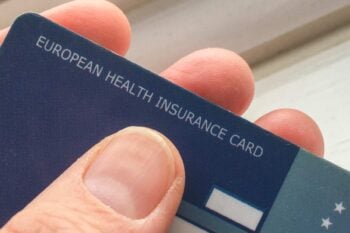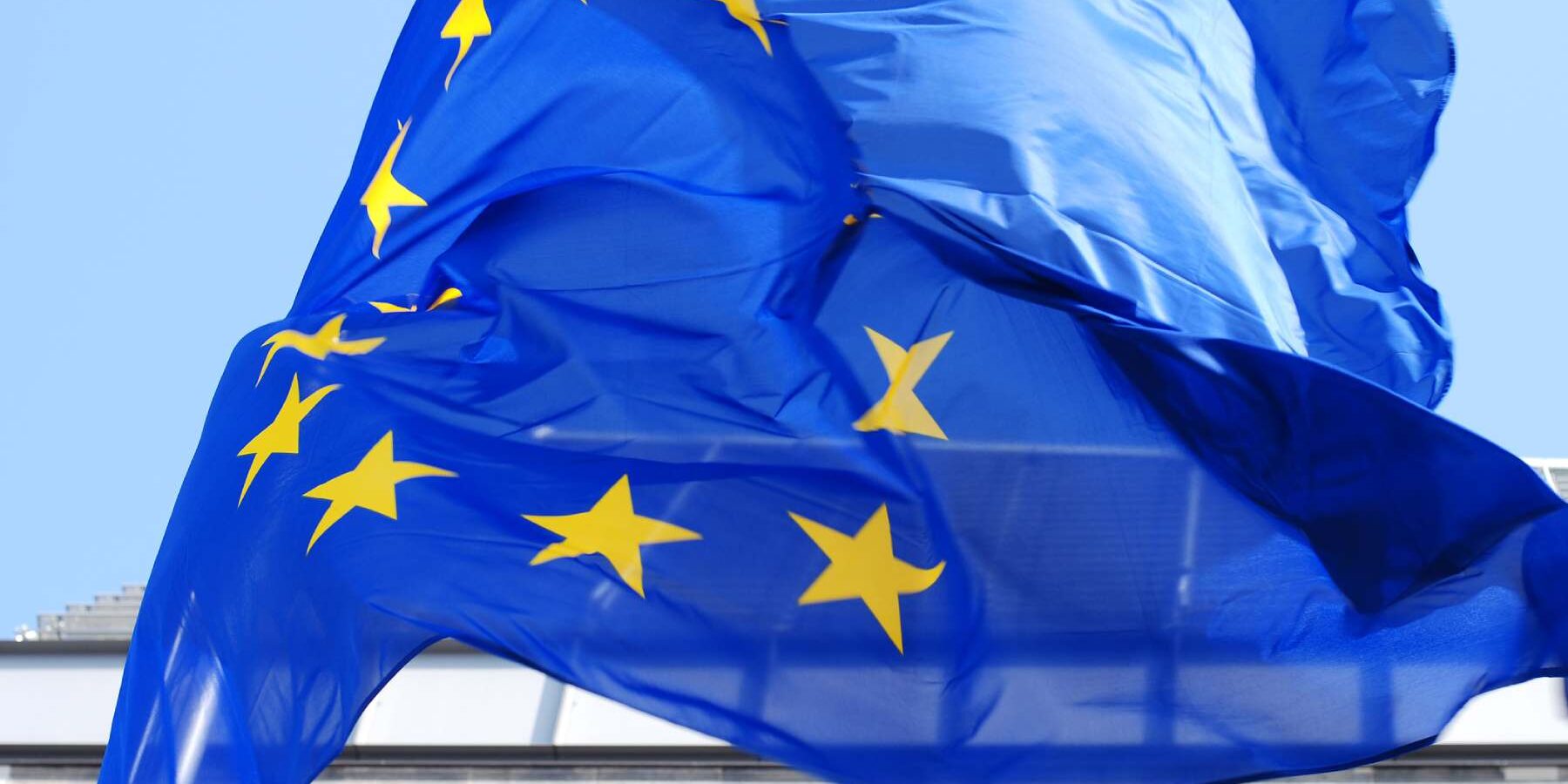
 Have you ever found yourself in a foreign country, feeling unwell and unsure where to turn for help? Imagine you're on vacation in Italy, and suddenly need medical attention due to an unexpected illness. This is where the European Health Insurance Card (EHIC) comes to your rescue.
Have you ever found yourself in a foreign country, feeling unwell and unsure where to turn for help? Imagine you're on vacation in Italy, and suddenly need medical attention due to an unexpected illness. This is where the European Health Insurance Card (EHIC) comes to your rescue.
In this article, we'll explain what the EHIC is, how it works, and why it's an essential tool for travelers within Europe. You'll also learn how to apply for the card and what kind of medical coverage it provides, ensuring you're prepared for any unforeseen health issues while abroad.
Have you ever found yourself in a foreign country, feeling unwell and unsure where to turn for help? Imagine you're on vacation in Italy, and suddenly need medical attention due to an unexpected illness. This is where the European Health Insurance Card (EHIC) comes to your rescue.
In this article, we'll explain what the EHIC is, how it works, and why it's an essential tool for travelers within Europe. You'll also learn how to apply for the card and what kind of medical coverage it provides, ensuring you're prepared for any unforeseen health issues while abroad.
What Is The European Health Insurance Card?
The EHIC is a free card that allows European citizens and legal residents with public health insurance or a mandatory social security scheme to access necessary medical treatment in other EU member states, as well as in Iceland, Liechtenstein, Norway, and Switzerland.
With an EHIC, a French citizen who needs a sudden appendectomy while on vacation in Italy will receive treatment at the same cost as an Italian. Similarly, a Norwegian visiting Brussels for a conference would be treated like a Belgian citizen if they broke their leg. Overall, it’s a great program that provides Europeans with flexibility and peace of mind when traveling.
Who Is Eligible and Where Can You Use It?
A total of 32 countries are part of the European Health Insurance Card (EHIC) program. This includes 27 countries in the European Union, the United Kingdom, and four countries in the European Free Trade Association (EFTA): Iceland, Liechtenstein, Norway, and Switzerland.
You do not need to be an EU citizen to use the EHIC. If you are a legal resident and covered by European Social Security, you can use the EHIC in most countries. However, if you are a legal resident but not a citizen, you cannot use the EHIC in Denmark, Iceland, Liechtenstein, Norway, or Switzerland.
The EHIC also applies to all French overseas territories that are part of the European Economic Area (EEA). This includes Martinique, Guadeloupe, Réunion, and French Guiana. However, it does not apply to non-EEA territories like Jersey, the Isle of Man, Aruba, the Channel Islands, and French Polynesia.

There are some exceptions to these rules. The Faroe Islands and Greenland have agreements that allow the use of the EHIC, even though they are not part of the EEA. Additionally, Croatians cannot use the EHIC in Switzerland, despite both countries being part of the EHIC program.
Finally, there are some complicated rules governing EHIC use for Romanians. Romania is the only participating country where not all permanent residents are covered by health insurance. Those who do have insurance must maintain it for five years before they can apply for an EHIC.
The rules regarding residency and insurance have often discriminated against the Roma people of Romania. As a result, many individuals in this community lack both state healthcare coverage and an EHIC.
The EHIC and Brexit
Until December 2020, UK citizens enjoyed the same privileges as other European Union members regarding EHIC agreements. However, Brexit means that the UK is no longer part of the EU, and many trade and union treaties, including those related to the EHIC, are no longer valid.
What Are the Effects on UK Citizens and Visitors to the UK?
UK citizens can no longer apply for a new EHIC card. Instead, following Brexit, the UK government issued a new Global Health Insurance Card (GHIC). This offers similar benefits for most UK citizens and provides access to “necessary healthcare” in EU countries at the same cost as citizens of those countries. However, it’s important to note that the GHIC does not cover all health services, and specific conditions may apply.
To use the card, you simply need to present your EHIC or GHIC before receiving treatment in a public or state-run healthcare facility. However, if you find yourself in a private health center or hospital, you will likely have to pay the full bill yourself unless covered by private medical insurance. Therefore, UK citizens should consider buying additional travel insurance, as the GHIC may not cover all healthcare needs, especially in emergencies or for specific treatments.
Looking for International Travel & Medical Insurance?
Request a free quote and we'll guide you through the process.
Notably, the EHIC remains valid for EU nationals visiting the United Kingdom. As of January 1, 2024, visitors from the EFTA, including Iceland, Liechtenstein, Norway, and Switzerland, can also use their EHIC to receive treatment in the UK.
UK citizens can receive coverage for necessary care in those countries using their GHIC cards as well. The additional fees that were charged between January 2021 and December 2023 have now been lifted. That said, it's best to regularly check for updates on the UK government’s official website or the relevant health authority, as policies can change.
What Does the EHIC Cover?
The European Health Insurance Card (EHIC) covers state healthcare, not private healthcare treatment, and the coverage differs depending on the country you’re visiting. To be covered, the care must be medically necessary and either unplanned or for the treatment of a serious chronic condition, such as diabetes or asthma. Covered care includes:
- Treatment for pre-existing medical conditions
- Routine medical care for pre-existing conditions that need monitoring
- Routine maternity care (if you’re not planning to give birth abroad)
- Emergency care and emergency treatment
These benefits are valid during the cardholder’s temporary visit to an EU member country. For example, individuals who require dialysis can travel knowing they will receive treatment on the same terms as citizens of the country they are visiting. However, not all public healthcare is free in the European Union, so it’s important to check the rules and costs for the country you intend to visit before you go.

It’s also essential to be aware of what the EHIC does not cover – chiefly, non-urgent care. The intention of the EHIC is to allow European residents to continue their business or personal travels without needing to return home for pressing medical care.
For example, a complication from ongoing asthma would be covered, but seasonal allergies that can wait for treatment would not. Similarly, a serious ankle sprain would be considered an urgent need, while aching knees after a long day of sightseeing would not.
The EHIC does not cover planned treatments. If you routinely get a dental check-up every August, you cannot receive it in the country you’re visiting just because it’s more convenient. Additionally, you cannot use the EHIC to "shop" for specialists – i.e., visiting different countries just to use the services of renowned cardiologists or plastic surgeons.
How Do You Apply for a European Health Insurance Card?
The European Health Insurance Card (EHIC) is provided free of charge to legal residents of participating countries who are covered by public health insurance. Each country is responsible for distributing the card to its own citizens. For some people, the EHIC comes automatically with their national health insurance card. However, for most individuals, you need to apply for the EHIC, usually by filling out a simple form.
To apply, you must prove your identity, citizenship, address, and other relevant information. You also need to be part of your country’s social security system to be eligible. This means contributing to the economy through taxes or other deductions or being part of a group that qualifies for an exemption. Each family member must apply individually for their own card.
Applying for the EHIC is relatively straightforward and free; however, the process may vary by country. Most countries allow you to apply online, while some might require in-person visits or mail submissions. Processing times can also differ, so it’s advisable to apply well in advance of any planned travel.
Be cautious of less reputable firms that advertise themselves as third-party administrative coordinators. These companies may charge a large fee to handle the application process on your behalf. While such services might be useful for obtaining travel visas, they are completely unnecessary for the EHIC.
If your EHIC is lost or stolen, it's important to report it immediately to your national health authority and follow their procedures for obtaining a replacement. For specific coverage limitations and more information, check with your national health authority or visit their official website.
Can You Apply for the EHIC Online?
As mentioned, you can apply for the EHIC online in most European countries. The process is typically free and involves filling out an application form on your country’s official healthcare or government website.
It's important to ensure you're using an official website to avoid scams. Once your application is approved, the card will be sent to your home address at no cost.
Be sure to check your country’s specific guidelines for the most up-to-date information on how to apply for or renew your EHIC.
Visit the official EHIC website to Apply Online
How Much Does the EHIC Cost?
The best part about the European Health Insurance Card (EHIC) is that it is completely free. There are no costs associated with obtaining it. Be cautious of companies that try to charge you for completeting the application for you.
While applying for the EHIC is free, remember that some countries may charge fees for certain healthcare services. Therefore, it’s important to check local rules regarding treatment costs. If you are a UK citizen, the new Global Health Insurance Card (GHIC) is also free and offers similar benefits.
As a best practice, keep your EHIC information handy while traveling, as you may need to present it at healthcare facilities to confirm your eligibility for free treatment.
How Do You Renew Your European Health Insurance Card?
European Health Insurance Cards are typically valid for five years, although each country sets its own validity period, which can be shorter or longer. You can begin the renewal process up to six months before your card expires.
Renewing your EHIC is often simpler than the initial application, and in many countries, it can be done online. Cardholders may receive notifications from their national health authority about upcoming expirations and renewal options. To renew, you’ll likely need to provide documentation such as proof of identity or residency. However, requirements may vary by country.

For UK residents, it's important to be aware of changes resulting from Brexit. This includes the transition to the Global Health Insurance Card (GHIC), which serves a similar purpose to the EHIC.
If your EHIC is lost or damaged, you will need to follow specific procedures for replacing it. You can find these on your national health authority's website. It’s best to apply for renewal as early as possible, as processing times can vary.
Do You Still Need Other Types of Insurance?
The European Health Insurance Card (EHIC) does not replace travel insurance. There’s a big difference between what the EHIC covers and what a full European travel insurance policy offers. For example, the EHIC won’t help with:
- Treatment in private hospitals or clinics
- Getting flown back home (repatriation)
- Lost or stolen property, such as luggage
- Rescue operations, such as being helped off a ski slope
- State-provided healthcare in non-EU countries
Another important thing to remember is that the EHIC only covers care in public medical facilities. You’ll be treated just like a local citizen, so you might need to wait in line at public hospitals and clinics. If you’re visiting a country where the public healthcare system isn’t as good as what you are used to, having private health insurance could give you better comfort and privacy.
Read More: Apply for International Insurance
How Do You Use the EHIC Card?
If you need to see a doctor while abroad, simply show your EHIC to the medical staff. In some countries, state healthcare is free for everyone, including EHIC holders. However, in many places, you may need to pay upfront and then reclaim the costs later. The amount you pay and what can be reimbursed will depend on the country’s healthcare policies.
Remember, the EHIC covers you for the same healthcare services as local residents. If certain things like prescription drugs aren't covered under the local healthcare system, they won’t be reimbursable. Similarly, if the country has co-pays for doctor’s visits, you’ll need to pay those, and they likely won’t be reimbursed.
Make sure to keep all receipts and paperwork to help with your claim later. You may also be asked to show photo identification along with your EHIC, as the card itself does not include a photo.
Travel with Confidence Using the EHIC
The European Health Insurance Card (EHIC) is an invaluable resource for European citizens and legal residents traveling across EU countries and beyond. It ensures access to essential medical care, allowing you to travel with greater peace of mind.
However, it’s important to understand the limitations of the EHIC and recognize that it does not replace travel insurance, so having both is crucial. By familiarizing yourself with what the card covers, the eligibility requirements, and the application process, you'll be better prepared for your travels.
Of course, it's wise to stay informed about the latest policies and regulations, especially regarding changes that may arise from events such as Brexit. Whether you're visiting family, attending a conference, or enjoying a holiday, having the right information will help you navigate healthcare in a foreign country effectively.
Read More
Author: Kamela Hutzley is a Senior Editor at International Citizens Insurance. She is a native New Jerseyite who recently emigrated to Halifax, Nova Scotia. In late 2022, she spent a month each in Ottawa, Montreal, and Quebec City, before deciding on Atlantic Canada for the long haul. She’s traveled to Hawai’i, Jamaica, France, Spain, the UK, Ireland, Greece, Switzerland, Germany and the Netherlands. Kamela writes about International Life Insurance, Travel insurance, and Health topics as well as advice for expats and travelers.





